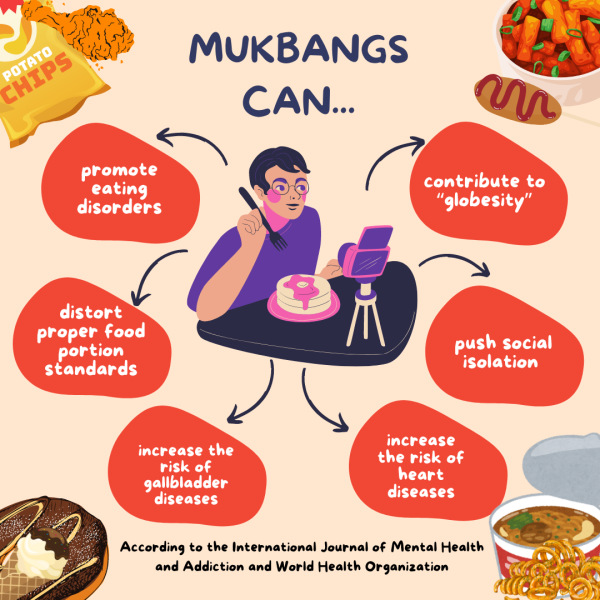Although not as popular as Christmas, Easter holds deep spiritual meaning for many
In our society, there is an array of religions, openly practiced by citizens. This in turn contributes to the creation of different holidays. Even with this diversity, the most widely celebrated holidays in the United States seem to be those of the Christian faith. Christmas has become materialized by society and has transformed into a holiday that is celebrated by people of different faiths, with the gift-giving tradition taking precedent in many occasions. However, although Christmas is an important holiday, some believe Easter holds greater importance, as it is a Christian holiday which celebrates the resurrection of Jesus Christ.
“I think [Easter] is one of the most important Christian holidays, because that’s the whole concept of our religion: that He died for us to save us and give us life, and that’s our spiritual rebirth,” senior Danielle Beard said. “I think we need to focus on that day because it’s the day where He physically died for us and was reborn.”
Although Easter has gained recognition as a pivotal holiday in the Christian faith, it is often overshadowed by the masses who celebrate Christmas.
“I think Easter is as important or more important than any other Christian holiday,” English teacher Barbara Clougherty said. “[But] I don’t think any Christian holiday is celebrated more than Christmas, on a kind of universal level where everybody celebrates it.”
The reason why Easter seems to be less celebrated than Christmas can be attributed to many factors, one of which is the obvious difference between cultural celebrations of both holidays.
“I think on a cultural level, there is a higher appeal to Christmas because it’s been materialized with all of the gift-giving,” Clougherty said. “So, the Christmas season is a very important part of our economy, not just an important part of our spirituality. Easter does not have the same tradition of gift-giving, so it’s not a time where we’re spending as much money or contributing to the economy at the same level.”
This cultural appeal has given Christmas a rise in popularity. Similarly, some popular culture aspects, such as the Easter bunny and Easter egg hunts, have done the same to Easter, although to a lesser extent. These practices ignore some of the spiritual aspects of Christian holidays.
“I think that people are quick to celebrate the humanistic holidays and enjoy the physical benefits to celebrating Christmas, like getting presents, [but] I think the emphasis should be placed more upon the spiritual importance,” junior Daniel Mitchell said.
Some examples of how traditional Easter celebrations have been changed over time are ever-present during this season, with the Easter bunny in the middle of the mall and advertisements for multiple egg hunts. Although these factors help bring people together to celebrate, they may not be the best way to appreciate this important Christian holiday.
“[Easter has] become watered-down by the Easter bunny and Easter egg hunts, when those are actually pagan traditions that don’t mesh with the actual Christian tradition,” Mitchell said.
In addition to the secular practices of this holiday, Easter is not considered to be as important as Christmas to society. Many colleges in the United States do not even grant time off for students to celebrate this holiday, as spring break for colleges does not typically coincide with the holy week of Easter. However, it should be noted that there are many other religious holidays that colleges do not grant time off for either.
“When you’re at college, you’re away from your family all the time,” senior Danielle Beard said. “[Easter is] just one time of year that you get to meet with your family and celebrate, and I think that [the fact that colleges do not give time off] needs to be changed.”
However, others argue that time off for one specific holiday is not needed.
“I don’t think [college students should be given time off to celebrate Easter]. I really think we have a lot of holidays and holy days in lots of religions,” Clougherty said. “[Students] may not have time, depending on how far away they live from home, to get home for Easter, but they can still celebrate Easter with the Christian community at their local university church. Nothing really should keep them from celebrating it on a spiritual level. They may miss time with their family, but they don’t have to miss time at church.”
Although the non-spiritual celebrations of Christian holidays, such as Christmas and Easter, are popular in today’s society, that should not prevent people from celebrating in a way in which they’re comfortable.
“I personally appreciate celebration,” Clougherty said. “If other people want to celebrate Christmas or Easter in a more cultural way or familial way, then I just think it’s fun that people are celebrating, and that doesn’t diminish the spiritual value that my family and I attribute to Christmas or Easter.”
Your donation will support the student journalists of Chantilly High School. Your contribution will allow us to cover our printing and annual website hosting costs.






